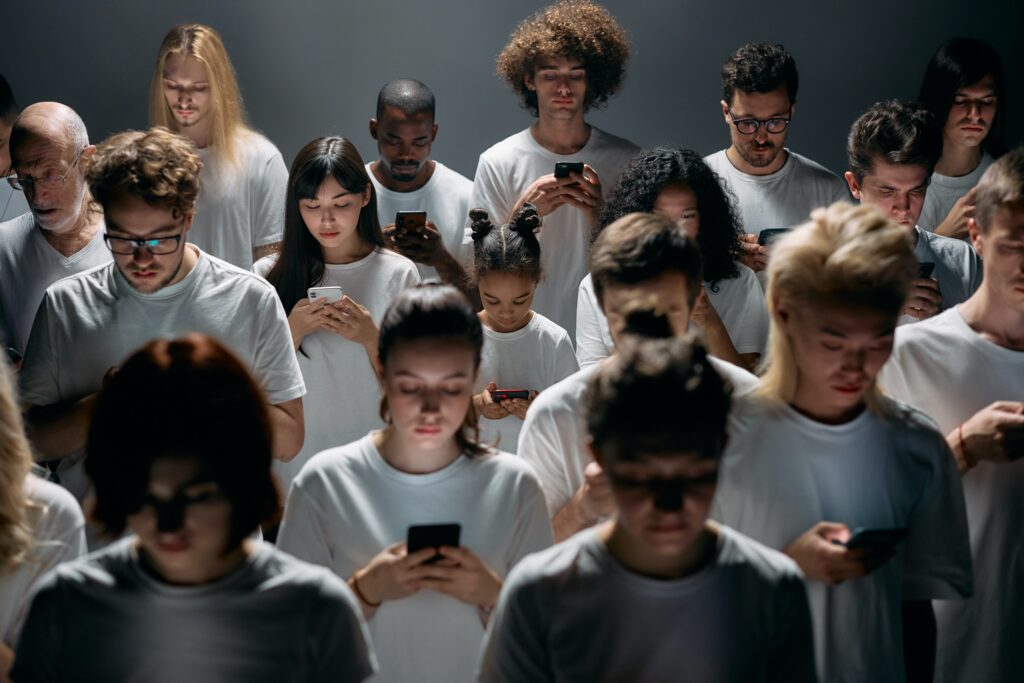On this page you’ll find
- Overview
- The Dangers of Social Media Addiction
- Overcoming Social Media Addiction
- Conclusion
Overview
Social media has revolutionized the way we communicate and share our lives with others. Whether it’s scrolling through Instagram, Snapchat, liking Facebook posts, or watching TikTok videos, social media has become a constant presence in our lives. While social media can provide a great platform for connecting with others and sharing ideas, it can also be incredibly addictive and detrimental to our mental health.
The addictive nature of social media is linked to the release of dopamine in the brain, which is the “feel-good” chemical responsible for pleasurable sensations. Notifications and likes trigger this release, leading to a cycle of compulsive behavior, seeking validation, and social comparison. Overall, social media addiction is a growing concern in modern society, and it is important to be aware of its potential impact on mental and physical health.
In this blog post, we’ll explore the dangers of social media addiction and provide tips on how to break the cycle.
The Dangers of Social Media Addiction
Social media addiction is a very real problem that affects millions of people worldwide. The constant need to check notifications and stay up-to-date with the latest posts and trends can lead to a variety of negative consequences, including:
- Anxiety and Depression: Social media addiction can cause anxiety and depression, as individuals compare their lives to others online and become obsessed with likes and followers.
- Decreased self-esteem: Users may feel a sense of inadequacy or low self-esteem when they compare themselves to others on social media who appear to have a more exciting life.
- Reduced attention span: Short format social medias like Tik-Tok, Youtube shorts can reduce attention span, making it difficult to concentrate on tasks, important activities and reduced productivity.
- Isolation: Spending too much time on social media can lead to isolation from real-life social connections, as individual become more focused on virtual relationships.
- Poor Sleep Quality: The blue light emitted from screens can interfere with sleep patterns, leading to insomnia and other sleep disorders.
Overcoming Social Media Addiction
If you’re struggling with social media addiction, there are steps you can take to overcome this problem. Here are some tips:
- Set Boundaries: Set limits on your social media usage, such as only checking notifications at certain times of the day or limiting your overall usage to a set amount of time.
- Prioritize Real-Life Connections: Focus on building and maintaining real-life connections, such as spending time with family and friends or joining social clubs or organizations.
- Practice Mindfulness: Engage in Mindfulness practices, such as meditation or yoga, can help you to be more present in the moment and less focused on social media.
- Take a Digital Detox: Consider taking a break from social media altogether, even if it’s just for a short period of time.
- Seek Professional Help: Reach out to a friend, family member, or therapist for support if you’re struggling to overcome social media addiction.
Conclusion
Social media addiction is a real problem and can have effects on mental health, relationships, self-esteem, and attention span. By setting boundaries, prioritizing real-life connections, practicing mindfulness, taking a digital detox, and seeking professional help if necessary, users can break the cycle of social media addiction and lead a more balanced and fulfilling life. , Remember, social media should be a tool for connection and self-expression, so take control of your social media use and not let it control you.

